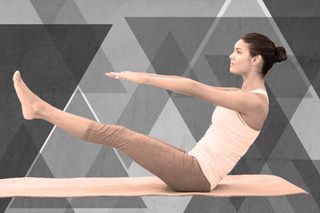
For Some Women Struggling to Get Pregnant, Exercise May Help
Walking might be the most reproductively beneficial exercise.

Results of a recent study to better understand the relationship between lifestyle factors and fertility suggest exercise may help women to improve their chances of becoming pregnant — specifically, walking.
The 1,214 women in the study were all healthy, between 18 to 40 years old, and had experienced one to two lost pregnancies. Women who reported more than four hours a week of vigorous activity had significantly higher pregnancy chances compared to no vigorous activity.
Moderate activity, sitting and other activity categories were not associated with chance of pregnancy overall or in analyses in which women were grouped by BMI.
The team is not sure what accounts for the different associations related to vigorous compared to moderate and low-intensity activities.
“We don’t know what to make of the finding that high intensity physical activity may have different biological effects than walking,” says study author Brian Whitcomb, an associate professor of biostatistics and epidemiology in the School of Public Health and Health Sciences at the University of Massachusetts Amherst, “but our study doesn’t offer enough detail to get at why vigorous activity would work differently than other levels.”
For the most part, type of exercise didn’t affect fertility — except walking; overweight and obese women in the study, who walked at least 10 minutes at a time, had better chances of becoming pregnant.
“Lifestyle is definitely relevant to these outcomes because it can have an effect at the molecular level. What we eat and what we do are potential factors we can change to shape our health,” Whitcomb says. “So this sort of research is important because it helps provide information on the things people can actually do something about.”
The researchers do acknowledge that physical activity is related to other behaviors and lifestyle factors, and women who are exercise more may be different from women who are less active in many ways. They say they tried to statistically control for these possible influences.
The researchers also note that it’s not fair to generalize the findings to all women trying to get pregnant, as the study only involved women with a history of pregnancy lost.
Still, the researchers conclude that “these findings provide positive evidence for the benefits of physical activity in women attempting pregnancy, especially for walking among those with higher BMI. Further study is necessary to clarify possible mechanisms through which walking and vigorous activity might affect time-to-pregnancy.”
Related


I Hallucinate After Waking Up
